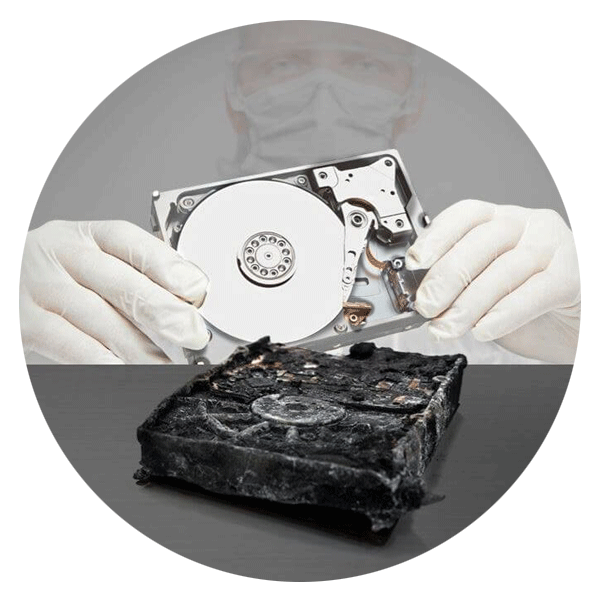Data Management Answers to Quiz - Fact vs. Fiction
How did you do on our last blog’s quiz? If you didn’t take it, please do before reading any further. If you did take it, let’s score your answers to see if you are a Data Management Expert.
- Fact: Providers following the ISO27018 code of practice must adhere to six principles (data control, data use, data protection, quality of cloud services, access to data by authorities, and validation by a trusted third-party) which define how they protect their customer’s data.
- Fiction: Tape is still a great method for storing cold data. Manufacturers are currently developing new ways to store more data per square inch of tape and modernizing the tape library to fit the needs of today’s data center.
- Fiction: Choosing to format a volume writes new data to the disk, potentially overwriting the data a person wants to recover. Depending on the OS (Windows, Linux, MAC, etc), the file system (NTFS, FAT32, EXT4, HFS, etc) and the format level chosen (low level, quick, full), this can be a relatively small amount of data (example: with NTFS it would write a new Master File Table (MFT), bitmap and NTFS log), or it can be the entire metadata or even the entire drive (full format with Windows Vista or newer writes a pattern to the entire drive). Because of this, formatting a volume should not be chosen as a data recovery method.
- Fact: Software Defined Storage systems are not based on controllers that are designed only for products of a particular manufacturer allowing the system to be free of hardware restraints.
- Fact: Currently, the maximum storage capacity of a 2.5-in SSD is 4GB and the maximum capacity of a HDD is 10TB. Those are the maximum capacities and not what you would commonly find in the marketplace. According to PCMag.com: “For the same capacity and form factor 1TB internal 2.5-inch drive, you'll pay about $60 to $75 for an HDD, but as of this writing, an SSD doubles that to $130 to $150.”
- Fiction: If you try to rebuild 2 drives at the same time, parity will be updated with the information from the new drives (zeroes or whatever data happens to be on the drive) making it unusable for recovery and losing the data that would have otherwise been recoverable.
- Fact: Data destruction is an important step in data management and data security. It is also important that your destruction method is tested to be 100% certain end-of-life data does not end up in the wrong hands.
- Fiction: This action makes the recovery much harder. Let’s assume you want to recover a single deleted VMDK file from a VMware VMFS volume. If the remainder of the files are left as active (allocating the space they use) those areas can be ignored when performing a recovery. If the active files are moved (copy then delete) then it adds to the number of deleted files to parse through and the amount of space that has to be read to find the missing data. If virtual disks or other files need to stay active, then it is much better to copy or clone these files to a new volume and use them on the new volume, rather than move (copy/delete) them.
- Fiction: A standalone granular recovery and collection tool, like Ontrack® PowerControls™, collects Microsoft® Exchange email data, especially from backups and PSTs, faster than native tools alone.
- Fact: Virtualization allows the storage on the server to be divided into multiple isolated virtual environments. It can be used to make more efficient use of server resources by enabling faster server provisioning, increased uptime (the ability to easily move a virtual machine from one server to another) and ease of resource management.
Add up your score and see your ranking below:
8-10 Correct: Congratulations! You are a Data Management Expert. Data must be a passion, or job requirement, of yours.
5-7 Correct: You are a Data Management Enthusiast. You may not be an expert, but you are well on your way!
4 or Less Correct: Data Management Researcher. You have an interest in data management and are hungry for more information. Stay in touch with Ontrack and visit our blog often for new and exciting data trends.
For information regarding Ontrack's expert data recovery service, click here.

Call for Immediate Assistance!
- Crypto Currency (2)
- Data Backup (9)
- Data Erasure (8)
- Data Loss (15)
- Data Protection (11)
- Data Recovery (22)
- Data Recovery Software (2)
- Data Security (3)
- Data Storage (15)
- Degaussing (1)
- Deleted Data (5)
- Digital Photo (2)
- Disaster Recovery (6)
- Encryption (1)
- Expert Articles (5)
- Hard Drive (7)
- Laptop/Desktop (7)
- Memory Card (5)
- Mobile Device (13)
- Ontrack PowerControls (1)
- Raid (5)
- Ransomware & Cyber Incident Response (6)
- Server (6)
- SSD (14)
- Tape (17)
- Virtual Environment (9)
